Diego Calanzone
Mol-MoE: Training Preference-Guided Routers for Molecule Generation
Feb 08, 2025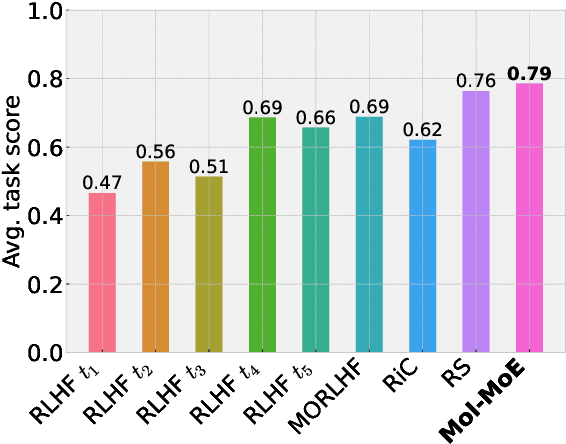
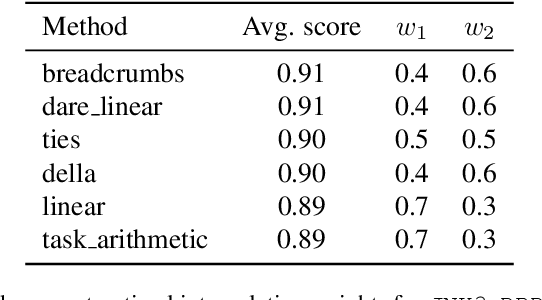
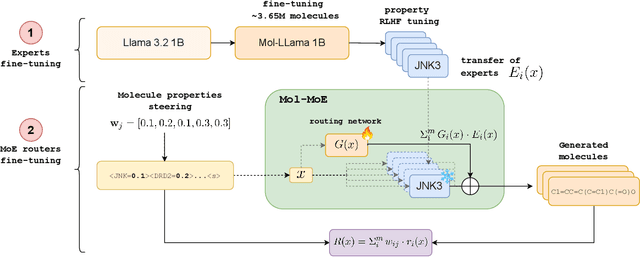

Abstract:Recent advances in language models have enabled framing molecule generation as sequence modeling. However, existing approaches often rely on single-objective reinforcement learning, limiting their applicability to real-world drug design, where multiple competing properties must be optimized. Traditional multi-objective reinforcement learning (MORL) methods require costly retraining for each new objective combination, making rapid exploration of trade-offs impractical. To overcome these limitations, we introduce Mol-MoE, a mixture-of-experts (MoE) architecture that enables efficient test-time steering of molecule generation without retraining. Central to our approach is a preference-based router training objective that incentivizes the router to combine experts in a way that aligns with user-specified trade-offs. This provides improved flexibility in exploring the chemical property space at test time, facilitating rapid trade-off exploration. Benchmarking against state-of-the-art methods, we show that Mol-MoE achieves superior sample quality and steerability.
Towards Logically Consistent Language Models via Probabilistic Reasoning
Apr 19, 2024
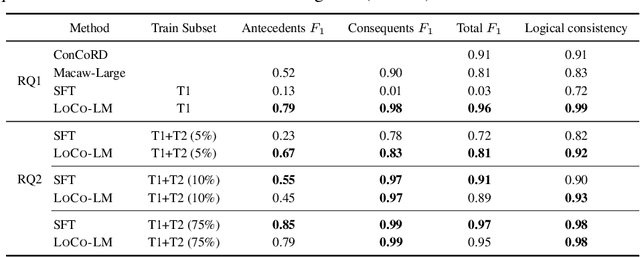
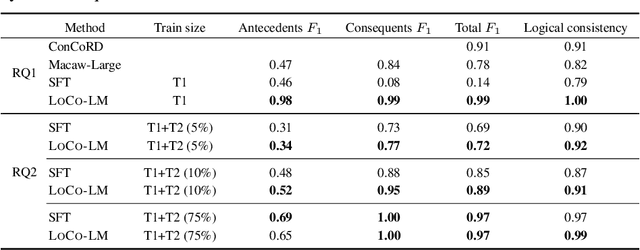

Abstract:Large language models (LLMs) are a promising venue for natural language understanding and generation tasks. However, current LLMs are far from reliable: they are prone to generate non-factual information and, more crucially, to contradict themselves when prompted to reason about beliefs of the world. These problems are currently addressed with large scale fine-tuning or by delegating consistent reasoning to external tools. In this work, we strive for a middle ground and introduce a training objective based on principled probabilistic reasoning that teaches a LLM to be consistent with external knowledge in the form of a set of facts and rules. Fine-tuning with our loss on a limited set of facts enables our LLMs to be more logically consistent than previous baselines and allows them to extrapolate to unseen but semantically similar factual knowledge more systematically.
 Add to Chrome
Add to Chrome Add to Firefox
Add to Firefox Add to Edge
Add to Edge